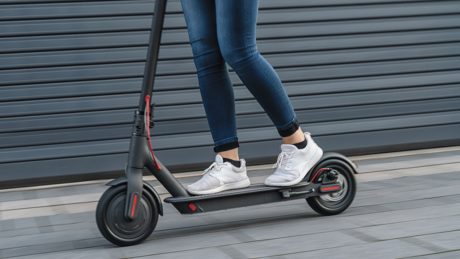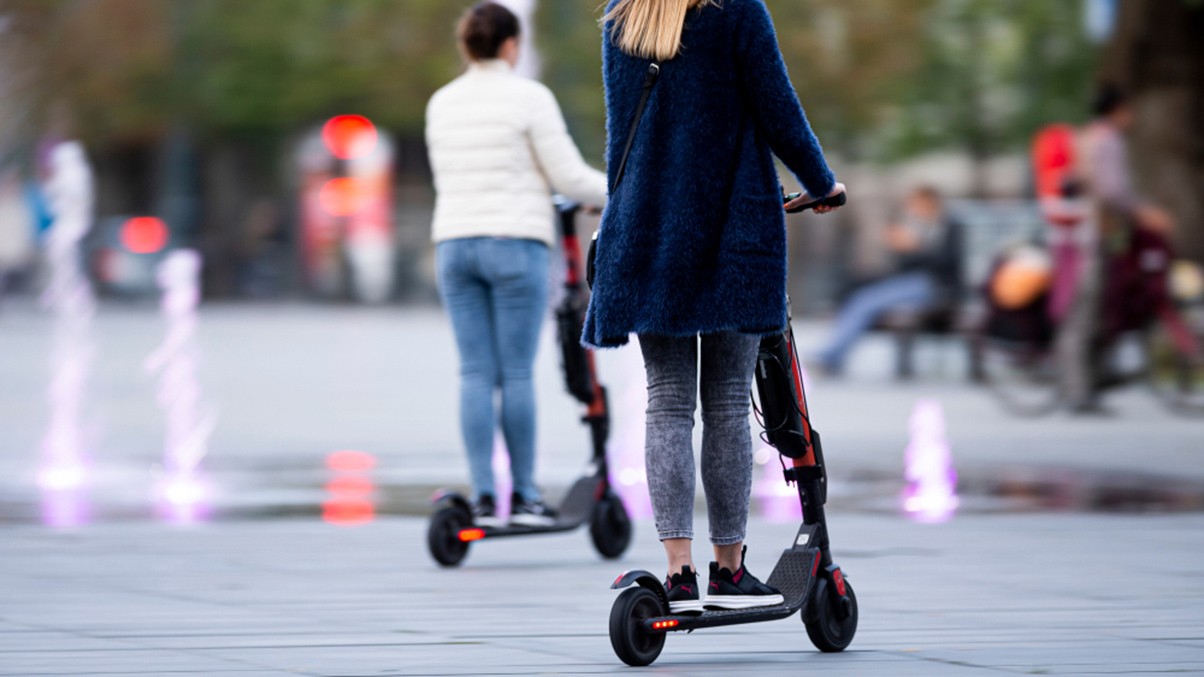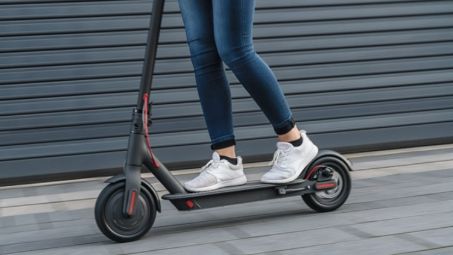As the e-scooters craze continues on a global scale and more trial schemes are introduced across various UK regions, e-scooter fever is only set to continue.
As e-scooter popularity soars, concerns are growing around public awareness of the legal standpoint on their usage, how safe the vehicles are and, if you are in possession of an e-scooter, how they can be safely and adequately maintained.
Here we shed light on the mounting calls for e-scooter legislation, and offer advice from two leading e-scooter manufacturers regarding their safe maintenance.
E-scooter sales
Despite the strict ban on riding personal e-scooters in public places, sales continue to skyrocket. Halfords reports that e-mobility product sales have nearly tripled over the last year. The cycling retailer says sales have grown by 184 percent in the first half of the financial year, and they expect a further surge in the lead up to Christmas.
Knowing the law
While it is legal to sell and purchase an e-scooter in the UK for personal use, they cannot be legally ridden on public land (roads, cycle lanes or pavements) unless the e-scooter is ridden in an area that’s part of a trial where road and cycle lane use is permitted.
E-scooter trials
In the absence of reliable accident data and figures drawing comparisons to other modes of transport to fully understand e-scooter safety, trials were brought forward. New regulations allowing rental e-scooter trials came into force in July 2020.
While trials are now ongoing in limited places in the UK, many local authorities are starting to introduce e-scooter trials, with Bristol, Bath and South Gloucestershire among some of the most recent. Bournemouth is also set to launch e-scooter trials in the coming weeks. E-scooter use on roads and cycle lanes is permitted in trial scheme areas.
E-scooters and insurance
With growing popularity of e-scooters alongside EAPCs (electrically assisted pedal cycles) and autonomous vehicles (AV), the need for an appropriate legislative and insurance regime which applies to these vehicle types is significant.
An appropriate insurance regime will protect both riders and victims of accidents involving e-scooters.
Daniel Herman, Stewarts’ Personal Injury partner, said: “Over the last six months, Transport for London has reported record numbers of people cycling in the capital. Last weekend the number of people using bicycles was up almost 300% at high flow sites. With the introduction of e-scooters to UK streets, even more people will be able to move around cities without the need to take public transport. This is clearly an option that is likely to prove popular, particularly during the current pandemic.
“However, these new forms of transport bring both benefits and risks. The public needs to ensure they are familiar with where and when e-scooters can be used. It’s also important that they know whether and to what extent insurance is in place; if an e-scooter user collides with a pedestrian and causes serious injury, they could potentially find themselves liable to pay millions of pounds in damages. Conversely, e-scooter riders will themselves be vulnerable road users. Sadly, we saw the number of cyclists killed on UK roads double during lockdown. Although not compulsory, e-scooter riders should, at the very least, wear a cycling helmet.
“It seems clear that our roads will change significantly in the coming decade with the advent of autonomous or semi-autonomous vehicles, e-scooters and e-bikes. The law is moving with the times and the government has passed legislation to cover new types of vehicles. What remains to be seen is whether these laws are sufficient and whether there are gaps that need to be filled.”
While there are urgent calls for legislation on e-scooter usage in the UK, the lack of consistency on e-scooter legislation across the globe emphasises usage is not clear-cut.
E-scooters maintenance: advice from the manufacturers
It is crucial for personal e-scooter owners to not only be aware of where they stand in the eyes of the law, but how they can go about safe e-scooter maintenance.
Below, Mark Shaffer of PET (Personal Electric Transport) and Rob Akam, Managing Director of Reid Bikes answers the most common questions around e-scooter maintenance, safety and advice.
How difficult is it to keep an e-scooter well maintained to ensure safe use?
PET: Electric scooters by nature are reliable due to the limited number of moving parts compared to a bicycle. However, consumables such as tyres and brakes need regular maintenance. Depending on the model, the frame, suspension and folding mechanism should be checked periodically.
Reid Bikes: It is not particularly difficult keeping an e-scooter well maintained as long as you do some essential checks before and after riding. For example, checking all screws, cleaning your e-scooter, ensuring its stored away from direct sunlight, and making sure the battery is charged.
Can you take e-scooters to a garage? If so, what is the protocol for repairs to be carried out?
PET: No, maintaining electric scooters requires a different skillset and tools available to garage mechanics. However, most e-bike mechanics would be able to work on electric scooters subject to the availability of parts.
Reid Bikes: It depends on the experience of the garage. However, you would find more success at a local bike/mobility shop that deals with these products more often. Then the protocol would be the same for bike repair: they would diagnose the issue, contact the brand for any additional parts needed and quote for parts and labour to the customer. However, many e-scooters come with a warranty, so check this first.
What are your views on safety concerns on their usage and maintenance?
PET: Similar to any vehicle used on our roads, electric scooters should be well maintained and used responsibly. Generally, electric scooters will require less maintenance than bicycles, but new riders should ensure they purchase from reputable resellers who can support them and assist with maintenance.
Reid Bikes: As with bike and e-bikes, e-scooters cause no safety concerns if they are maintained and used in the correct way. They occupy the same space, are limited by regulation to 25kph (the same as e-bikes) and if ridden and maintained properly, offer an incredible eco-friendly solution to short-distance travel.
How are retailers educating consumers of their usage within trial zones
PET: PET employs experienced engineers in its workshops who support customers all over London. However, the current electric scooter gold-rush has brought a flock of e-commerce dealers who offer no support at all and fail to inform customers of this requirement. It is a growing problem.
Reid Bikes: I don’t believe retailers are. The trial scooters are for rental only and therefore are often not picked up from a person or a retailer. Many of the current trial scooters can be picked up without having a conversation with someone who is educated in the area.
Find out more about the current position on the legalisation and regulation of e-scooters in the UK here.
You can find further information regarding our expertise, experience and team on our Personal Injury pages.
If you require assistance from our team, please contact us or alternatively request a call back from one of our lawyers by submitting this form.
Subscribe – In order to receive our news straight to your inbox, subscribe here. Our newsletters are sent no more than once a month.






